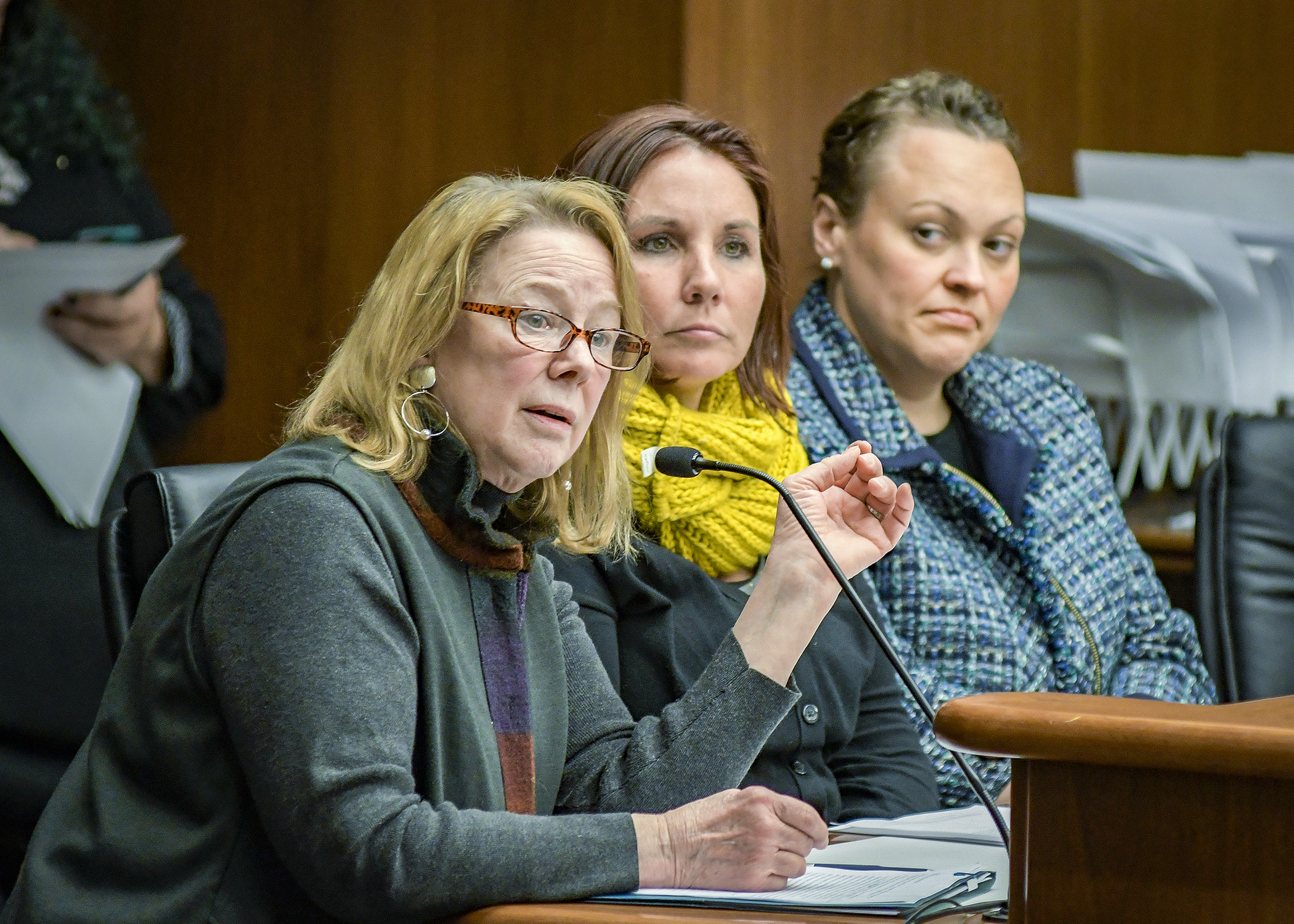Increased rates for doula services could improve access for women in need

Doulas help mothers prepare for birth both physically and psychologically, coach them through the birth itself, and follow-up with them afterward.
“It really is a nice way for the moms to … have a birth that feels more companionate,” said Rep. Tama Theis (R-St. Cloud). “They have somebody in their corner.”
But doula services are reimbursed by Medical Assistance at incredibly low rates, especially after the cost of administrative fees. The work can even end up costing doulas, said Tonja Honsey, a doula with the Minnesota Prison Doula Project.
HF259, sponsored by Rep. Alice Mann (DFL-Lakeville), would nearly double the reimbursement rates for doula services provided to women on Medical Assistance to $47 per prenatal or postpartum visit and $488 per birth. The rate increase is projected to cost $64,000 over the 2020-21 biennium.
The bill was held over, as amended, by the House Health and Human Services Finance Division Thursday for possible omnibus bill inclusion.
A companion, SF1044, is sponsored by Sen. Jim Abeler (R-Anoka) and awaits action by the Senate Health and Human Services Finance and Policy Committee.
Doulas can arrange for prenatal care, drive clients to appointments if needed, provide individualized information about childbirth, help to minimize fear and anxiety, create support networks, and make referrals, said Susan Lane, a doula of 22 years.
Most of all, doulas work to promote the mother’s wishes – something that’s especially important when a woman is facing the childbirth process without the support of a partner or family, Lane said.
In 2013, Honsey had a high-risk, complicated pregnancy that required full bed rest because of a previous injury and stress – she was also homeless, having left an abusive relationship when she was four months pregnant, and would have given birth alone, if not for the support of a doula at Everyday Miracles.
Meeting with her doula “was the only time during my pregnancy where I was celebrated … Where I was able to connect with anybody and really feel like a mom,” she said.
These services improve outcomes for both new mothers and babies, Mann said. The rates of C-sections are almost 40 percent lower than amongst women who didn’t receive services and the rate of babies who are born early is also cut.
“That’s a huge, huge deal,” she said.
It also cuts costs by minimizing these expensive complications. A pre-term birth typically costs $50,000 more than a full-term birth, and doula services result in an average of $1,000 savings in related medical expenses per birth, Lane said.
But reimbursement rates are so low, many doulas are discouraged from taking patients on Medical Assistance, Honsey said.
The increased rates, would help change this by allowing doulas to “make something and be honored for the work they’re doing,” and encourage more doulas to serve Medical Assistance patients, she said.
Related Articles
Search Session Daily
Advanced Search OptionsPriority Dailies
Ways and Means Committee OKs House budget resolution
By Mike Cook Total net General Fund expenditures in the 2026-27 biennium will not exceed a hair less than $66.62 billion.
That is the budget resolution approved Tuesday by the House Ways...
Total net General Fund expenditures in the 2026-27 biennium will not exceed a hair less than $66.62 billion.
That is the budget resolution approved Tuesday by the House Ways...
Minnesota's budget outlook worsens in both near, long term
By Rob Hubbard It looks as if those calling for less state spending could get their wish, judging from Thursday’s release of the February 2025 Budget and Economic Forecast.
A state su...
It looks as if those calling for less state spending could get their wish, judging from Thursday’s release of the February 2025 Budget and Economic Forecast.
A state su...